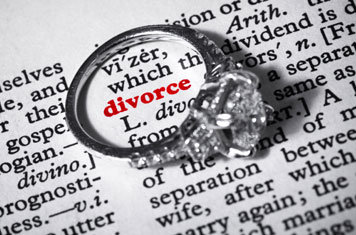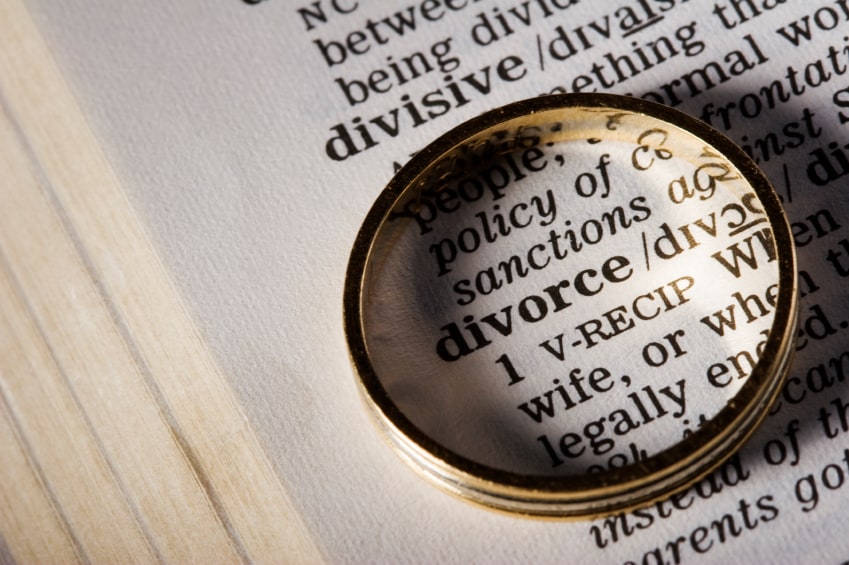
When going through a divorce, you will likely encounter terms you may not be familiar with. This guide to divorce terminology will help you better understand them.
Alimony: Refers to money paid by one spouse to the other that is separate from child support. Alimony is sometimes referred to as spousal support or spousal maintenance. It may be granted on a temporary basis while the spouse adjusts to being single, or permanent to allow the receiver to maintain the lifestyle he or she enjoyed while married.
Annulment: A method of ending a marriage by declaring that it was never valid to begin with. Annulments are sometimes given because one party is underage or of unsound mind, but may also be granted when there is fraud or coercion.
Arrearage: A sum of money that is past due for the payment of child or spousal support.
ATRO: Automatic Temporary Restraining Orders, which are court orders included in each California divorce summons. The standard language in an ATRO prohibits either party from removing children from the state of California, canceling insurance policies, borrowing against the estate, or disposing of property.
Child Support: A sum or money paid by the non-custodial parent to the custodial parent to help offset the cost of raising any children produced by the marriage.
Child Support Guidelines: A set of guidelines that is used in calculating child support. The California Department of Child Support Services is responsible for monitoring child support payments between parents, and also provides a calculator that you can use to estimate payments.
Community Debts: Debts that a husband and wife owe jointly.
Community Property: Consists of everything that a married couple owns together, which may include real property, stocks, and pension benefits.
Complaint: The formal document filed with the court which states that one party wishes to divorce the other and the grounds for doing so.
Custodial Parent: The parent who has the child(ren) living with him or her the majority of the time.
Date of Separation: Under California law, the date of separation is the day when you and your spouse mentally ceased being husband and wife. It is not necessarily the date when one party left the marital home.
Ex-Parte: An emergency request from the court on a family matter due to extreme circumstances.
Guardian ad Litem: An attorney who may be appointed by the courts in order to represent the best interest of the child(ren). A guardian ad litem is not automatically appointed, but can be requested by either party through an attorney or by visiting the Equal Access Project for assistance.
Irreconcilable Differences: Means the marriage is irretrievably broken, and there is virtually no chance of reconciliation. Irreconcilable differences is the standard by which California divorces are granted.
Paternity: Involves legally determining fatherhood, and is required before child support is ordered.
Pre-nuptial Agreement: An agreement entered into by the parties that spells out certain rights for each one in the event of a divorce.
Restraining Order: An order preventing one party from contacting or harassing another. This differs from an ATRO in that it is not automatically granted by the court, but instead is something that one of the parties must petition for. Restraining orders are typically granted in cases of domestic violence.
Visitation: The right of a non-custodial parent to spend time with his or her children after primary custody has been established.
Waiting Period: The amount of time required between the filing of paperwork and the actual order from a judge dissolving the marriage. In California, the waiting period for a divorce is six months and one day.




 When a divorce is settled via an agreement, it’s called a divorce settlement, marital settlement or collaborative settlement agreement. The agreement allows you and your spouse to have a written agreement that spells out the terms of your divorce. The agreement specifically covers one or more of the following:
When a divorce is settled via an agreement, it’s called a divorce settlement, marital settlement or collaborative settlement agreement. The agreement allows you and your spouse to have a written agreement that spells out the terms of your divorce. The agreement specifically covers one or more of the following: Filing for an annulment rather than a divorce can be a complicated process. An annulment has the expressed goal of deeming the marriage invalid, and thus, wiping it from the record as if it never existed. A divorce, on the other hand, is when two parties agree to end a marriage through the
Filing for an annulment rather than a divorce can be a complicated process. An annulment has the expressed goal of deeming the marriage invalid, and thus, wiping it from the record as if it never existed. A divorce, on the other hand, is when two parties agree to end a marriage through the 

